In our last episode, we examined the broad scope of scripture, stopping at many texts along the way that teach about a future kingdom when Jesus returns. In this session, we’ll take a look at a number of sometimes misunderstood texts that seem to imply the kingdom is either already present or in heaven.
Here is the picture of the Greek manuscript known as Codex Vaticanus on Luke 23.43 with an arrow pointing to the alleged comma:
And here is Codex Sinaiaticus on 1 Timothy 3.16, with the hand of a later scribe “correcting” ος to θς, changing “who” to “God.”
—— Notes ——
State the Doctrine Simply
The kingdom is the age when Jesus rules over the world from the throne of David in Jerusalem. It is present in that the sense that his followers already recognize him as king and submit to his kingdom way. (It’s been inaugurated but not consummated.) When it arrives, it will fill the earth.
Texts that Support This Teaching
Gen 1.28; Ps 2.6-9; 37.9-11, 22, 29, 34; 110; Is 11.1-9; 25.6-9; 35; Dan 2.44; 7.13-14, 18, 22, 27; Mic 4.1-8; Am 9.11-15; Zeph 3.8-20; 45.18; Mt 5.5; 6.9-10; 13.24-30, 36-43; 19.27-28; 25.31-46; Lk 1.31-33; 13.23-30; Acts 1.3-8; 3.19-21; 1 Cor 6.1-3; 15.24-28; 2 Tim 2.11-13; Rev 2.26-27; 5.10; 11.15-18
Difficult Texts:
Kingdom Is Already Here (Either as Spiritual Reality or Came on Pentecost)
Luke 10.9
Heal the sick in it and say to them, ‘The kingdom of God has come near to you.’
Luke 11.20
But if it is by the finger of God that I cast out demons, then the kingdom of God has come upon you.
- these two clearly imply the kingdom is not future but present in the ministry of Jesus
- we don’t have to take an “either or” hermeneutic; we can take a “both and” position
Luke 17.20-31
20 Being asked by the Pharisees when the kingdom of God would come, he answered them, “The kingdom of God is not coming in ways that can be observed, 21 nor will they say, ‘Look, here it is!’ or ‘There!’ for behold, the kingdom of God is in the midst of you.” 22 And he said to the disciples, “The days are coming when you will desire to see one of the days of the Son of Man, and you will not see it. 23 And they will say to you, ‘Look, there!’ or ‘Look, here!’ Do not go out or follow them. 24 For as the lightning flashes and lights up the sky from one side to the other, so will the Son of Man be in his day. 25 But first he must suffer many things and be rejected by this generation. 26 Just as it was in the days of Noah, so will it be in the days of the Son of Man. 27 They were eating and drinking and marrying and being given in marriage, until the day when Noah entered the ark, and the flood came and destroyed them all. 28 Likewise, just as it was in the days of Lot– they were eating and drinking, buying and selling, planting and building, 29 but on the day when Lot went out from Sodom, fire and sulfur rained from heaven and destroyed them all– 30 so will it be on the day when the Son of Man is revealed. 31 On that day, let the one who is on the housetop, with his goods in the house, not come down to take them away, and likewise let the one who is in the field not turn back.
Albert Nolan:
“Many Christians have been misled for centuries about the nature of God’s kingdom by the well-known mistranslation of Lk 17:21: “The kingdom of God is within” Today all serious scholars and translators agree that the text should be read: “The kingdom of God is among you or in your midst.” The Greek word entos can mean “within” or “among” but in the present context to translate it “within” would mean that in answer to the Pharisees’ question about when the kingdom of God would come (17:20) Jesus told them that the kingdom of God was within them! This would contradict everything else Jesus ever said about the kingdom or about the Pharisees. Moreover, since every other reference to the kingdom presupposes that it is yet to come and since the verb in every other clause in this passage (17:20-37) is in the future tense, this verse must be understood to mean that one day they will find that the kingdom of God is suddenly and unexpectedly in their midst.”[1]
- another option is that Jesus, as the king, represents the kingdom, thus they are staring at the kingdom and yet they don’t perceive that its right in front of them
Matthew 24.29-34
29 “Immediately after the tribulation of those days the sun will be darkened, and the moon will not give its light, and the stars will fall from heaven, and the powers of the heavens will be shaken. 30 Then will appear in heaven the sign of the Son of Man, and then all the tribes of the earth will mourn, and they will see the Son of Man coming on the clouds of heaven with power and great glory. 31 And he will send out his angels with a loud trumpet call, and they will gather his elect from the four winds, from one end of heaven to the other. 32 “From the fig tree learn its lesson: as soon as its branch becomes tender and puts out its leaves, you know that summer is near. 33 So also, when you see all these things, you know that he is near, at the very gates. 34 Truly, I say to you, this generation will not pass away until all these things take place.
- three options for understanding “this generation:”
- This generation refers to the generation of his original disciples.
- Generation really means a race. The Jewish race will not pass away before the end.
- This generation is the future generation that sees the abomination of desolation. Once these signs come, the end will occur within a generation.
- could it mean both 1 & 3?
- Could it be that Jesus spoke in such a way that it related both to his immediate audience as well as his ultimate audience way off in the future? Perhaps Jesus grouped the two events—the temple’s destruction and the coming of the son of man—together because of their similarities not their timing.
Craig Keener put it this way:
“Old Testament prophets often grouped events together by their topic rather than their chronology, and in this discourse Jesus does the same. He addresses what are grammatically two separate questions: the time of the temple’s destruction and the time of the end.”[2]
Matthew 16.28-17.9
28 Truly, I say to you, there are some standing here who will not taste death until they see the Son of Man coming in his kingdom.” 17.1 And after six days Jesus took with him Peter and James, and John his brother, and led them up a high mountain by themselves. 2 And he was transfigured before them, and his face shone like the sun, and his clothes became white as light. 3 And behold, there appeared to them Moses and Elijah, talking with him. 4 And Peter said to Jesus, “Lord, it is good that we are here. If you wish, I will make three tents here, one for you and one for Moses and one for Elijah.” 5 He was still speaking when, behold, a bright cloud overshadowed them, and a voice from the cloud said, “This is my beloved Son, with whom I am well pleased; listen to him.” 6 When the disciples heard this, they fell on their faces and were terrified. 7 But Jesus came and touched them, saying, “Rise, and have no fear.” 8 And when they lifted up their eyes, they saw no one but Jesus only. 9 And as they were coming down the mountain, Jesus commanded them, “Tell no one the vision, until the Son of Man is raised from the dead.”
- they received a vision of the kingdom with Jesus glorified and Moses and Elijah resurrected
- this fulfilled Jesus’ prophecy that they wouldn’t die before “seeing” the son of man coming in his kingdom
Kingdom Is in Heaven
John 14.1-3
1 “Let not your hearts be troubled. Believe in God; believe also in me. 2 In my Father’s house are many rooms. If it were not so, would I have told you that I go to prepare a place for you? 3 And if I go and prepare a place for you, I will come again and will take you to myself, that where I am you may be also.
- some say these “rooms” refer to dwelling places in heaven where the faithful go at death
- God’s house is spiritual not literal (see the rest of the chapter where Jesus repeatedly talks about coming to dwell in the believers, obviously not physically)
- he is going away to prepare a place and will come again to receive them
- Jesus, of course, is coming back to establish God’s kingdom
- that where I am you may be also
- if Jesus is here reigning then so will we
- this is the role of the son of man (Dan 7.13-14) and the saints (Dan 7.18, 22, 27)
John 18.36
Jesus answered, “My kingdom is not of this world. If my kingdom were of this world, my servants would have been fighting, that I might not be delivered over to the Jews. But my kingdom is not from the world.”
N. T. Wright writes:
“’The world,’ as we’ve seen again and again, is in John the source of evil and rebellion against God. Jesus is denying that his kingdom has a this-worldly origin or quality. He is not denying that it has a this-worldly destination. That’s why he has come into the world himself (verse 37), and why he has sent, and will send, his followers into the world (17.18; 20.21). His kingdom doesn’t come from this wolrd, but it is for this world. That is the crucial distinction.”[3]
Luke 23.39-43
39 One of the criminals who were hanged railed at him, saying, “Are you not the Christ? Save yourself and us!” 40 But the other rebuked him, saying, “Do you not fear God, since you are under the same sentence of condemnation? 41 And we indeed justly, for we are receiving the due reward of our deeds; but this man has done nothing wrong.” 42 And he said, “Jesus, remember me when you come into your kingdom.” 43 And he said to him, “Truly, I say to you, today you will be with me in Paradise.”
- some say that very day, the thief and Jesus went to heaven
- others say they went to a subterranean waiting area, aka Abraham’s bosom
- didn’t go to heaven b/c:
- John 20.17
Jesus said to her, “Do not cling to me, for I have not yet ascended to the Father; but go to my brothers and say to them, ‘I am ascending to my Father and your Father, to my God and your God.'”
- John 20.17
- and he said he would be in the heart of the earth
- Matthew 12.40
For just as Jonah was three days and three nights in the belly of the great fish, so will the Son of Man be three days and three nights in the heart of the earth.
- Matthew 12.40
- context is king
- asked if he will remember him when he comes into his kingdom
- Jesus is not telling him he’ll be in the kingdom today, but that he doesn’t have to wait until then to remember him. he makes the decision “today” right then and there, that he will be (in the future) with him in paradise
[1] Albert Nolan, Jesus before Christianity (1992), p. 58-59
[2] Craig S. Keener, The IVP Bible Background Commentary: New Testament (Downers Grove, IL: InterVarsity Press, 1993), pp. 111-2.
[3] N. T. Wright, John for Everyone: Part 2 (Louisville, KY: Westminster John Knox Press, 2004), p. 115.
—— Links——
- see KingdomUprising.com for more resources on the kingdom, including a video class by Victor Gluckin.
- check out my own audio kingdom of God class starting at podcast 84
- See other episodes in this Theology Class
- Find more Restitutio classes here
- For more on the kingdom of God see these posts
- Intro music: Jazzy Frenchy by bensound.com. Licensed under Creative Commons: By Attribution 3.0 License.


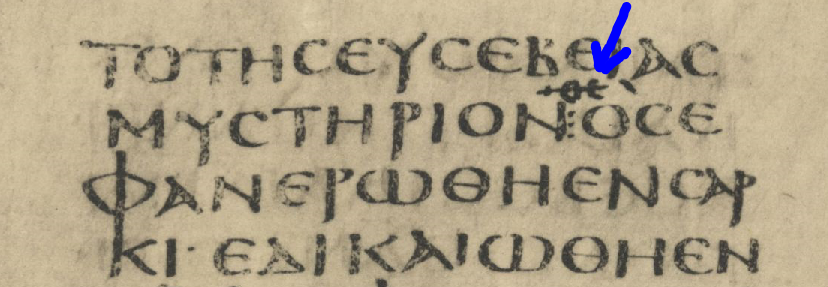
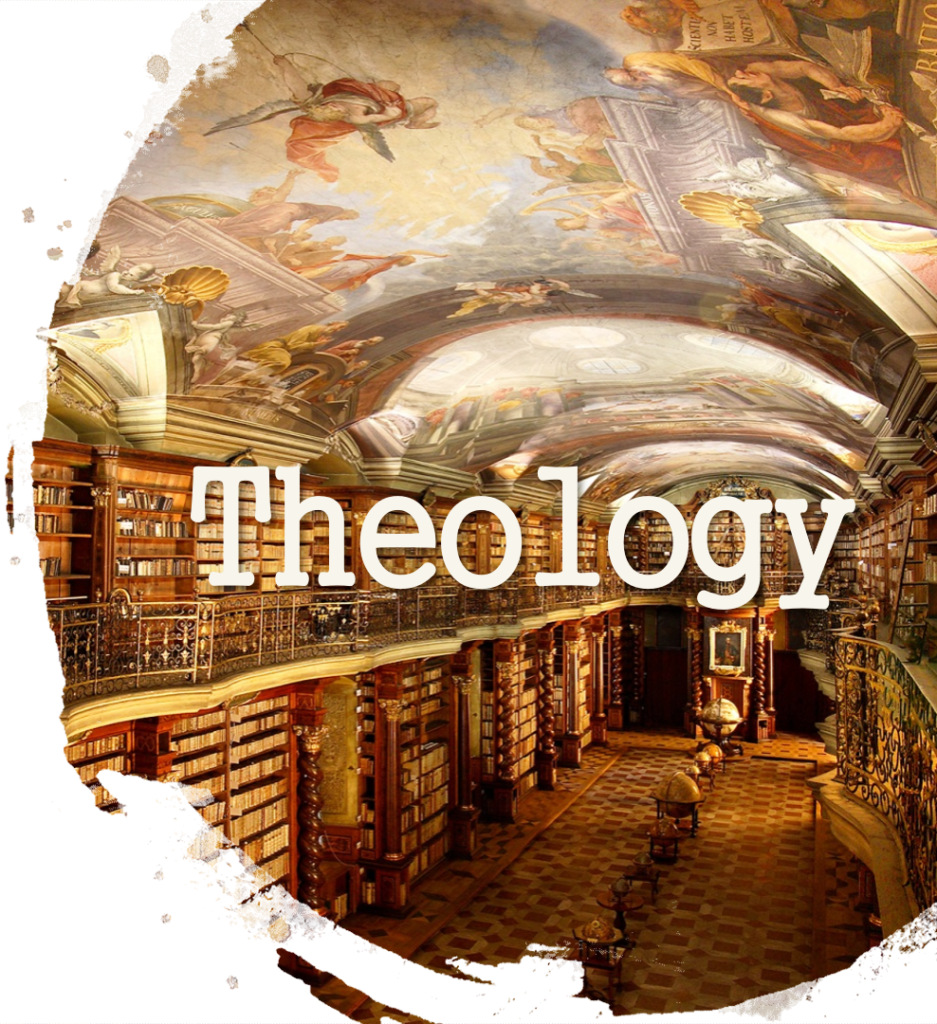
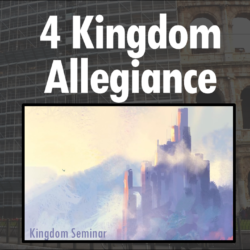
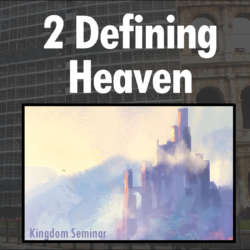
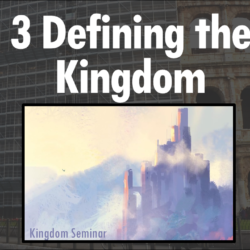
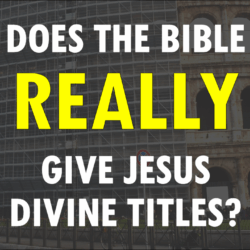
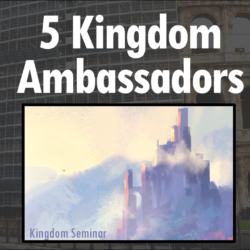

Hi Sean. I am aware that most scholars today view the verses in Luke 11 and 17 as saying that the kingdom is present (inaugurated) in some sense, but I believe they have been taken out of context. It’s too much too type here and at this moment, but I have some resources that I believe you would be interested in that challenges what has become the predominant view.
Hey Derek,
Can you drop a link to this research?
Hi Sean,
Matt 16:28 Truly, I say to you, there are some standing here who will not taste death until they see the Son of Man coming in his kingdom.
How many standing there do you suppose died between the time Jesus made that statement and the transfiguration, which was only 6 days later? Do you think Jesus suspected that some, or even most, of the people standing there with him were on the brink of death? Why would Jesus have included that phrase?
I do not believe the transfiguration was the fulfillment of Jesus’ statement in Matt 16:28. I do not believe the transfiguration was “the Son of Man coming in his kingdom”. I believe that Jesus believed and taught what he knew from the OT (Daniel 9 and elsewhere), that soon after his death and resurrection the Tribulation would commence. Many people -will- die in the coming Trib, but some will get through it, and see “the Son of Man coming in his kingdom”. This same thought fits well with Matt 24:34.
Also, note Jesus’ language in Matt 24: “when YOU see … “, “when YOU hear … “, “take heed that no man deceive YOU”, “they will deliver YOU up”, “when YOU see the abomination of desolation”, etc. Jesus said those things to the people who were listening to him, and those things were not fulfilled within their lifetimes. God intervened with the secret (Eph 3:2ff).
Dispensationally yours, 😉
Rob